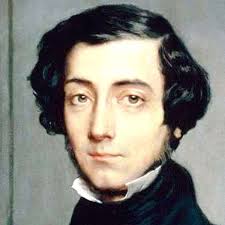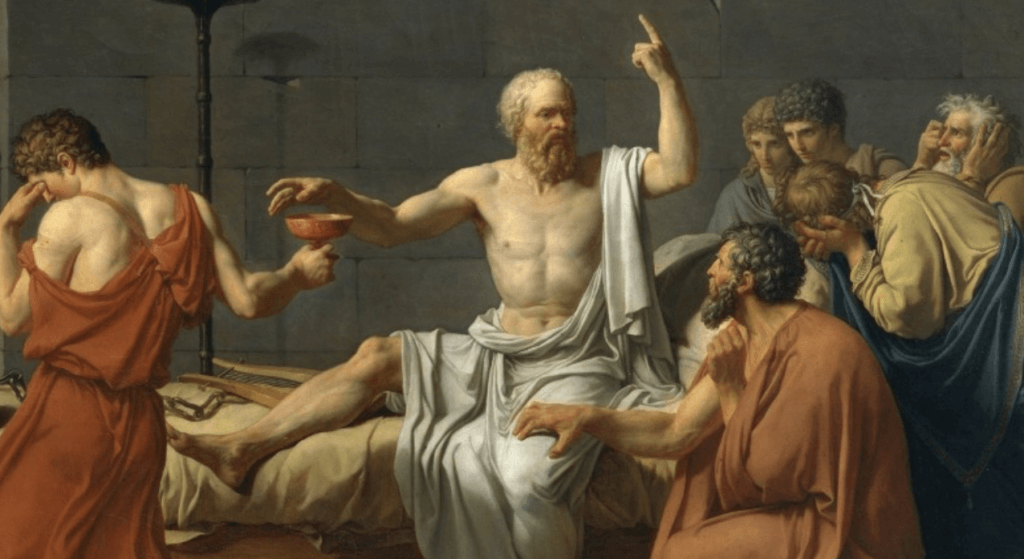It’s that time again.
Every two years I write an “Election Edition” of Five Minute Law. Two years ago, on the eve of the 2016 presidential election, I posted Political Correctness, Paleo Correctness, Trump, and What All This Has to Do With Lawyers.
The primary argument: political correctness, i.e. dogmatic liberalism, is a problem, but the proper antidote is true liberalism (in the historic sense), not prejudice. The secondary argument: lawyers have a special role in defending individual liberties and tolerance.
I think subsequent events have largely confirmed both arguments. The backlash against liberalism has proceeded on multiple fronts. And on each front, lawyers have played a prominent role.
It’s striking how many of the political fights over the last two years have involved litigation, lawyers, and judges. Take the “travel ban,” separation of immigrant children, the Mueller investigation and prosecutions, just to name a few. These battles have raged in the courts, not the halls of Congress.
Even the most recent political battle, while fought in the Senate, was about who would sit on the nation’s highest court. Everybody understood the stakes.
If there is one thing both sides agree on, it’s that law matters in American politics. Whether you send money to the Federalist Society or the ACLU, you understand the power wielded by those who interpret and apply the law.
This is partly because of the Supremacy Clause. When the Constitution is the supreme law of the land, interpretation of the Constitution becomes paramount.
Even aside from the Constitution, law is fundamentally important to American politics. Whether you vote for Ted Cruz or Beto O’Rourke, you probably like to invoke the “rule of law” in support of your political opinions.
The Constitution and the rule of law are supposed to keep the majority from oppressing the minority. And we want to prevent those who come to power in the name of the majority from abusing their power to the point where they no longer bother answering to the majority. It’s part of the “checks and balances” the American founders created.
They even left us with an instruction manual, in the best book ever written about American politics. It’s really not a book, but a series of essays anonymously published under the pseudonym “Publius.”
The real identity of Publius remains shrouded in historical mystery, but some believe he was connected to Aaron Burr.
Publius was bullish on the possibilities of an American republic but had one overriding worry: how to prevent American democracy from devolving into tyranny—either by the majority or by a demagogue claiming to speak for the majority. The Constitution—along with the Bill of Rights added later—was designed to prevent this.
But Publius understood the Constitution was not an automaton that, once set in motion, would guarantee freedom for his posterity. The success of the American experiment would depend on certain virtues of the people and their leaders. The republican system could be thwarted by a leader skilled in “flattering the prejudices of the people” who could “mount the hobby horse of popularity.”
So as great as the Federalist Papers are, they are not enough. We also need the second-best book about American politics. Strangely, the man who wrote this book was not a democrat, and not even an American. He was a French aristocrat named Alexis de Tocqueville.
In his two-volume masterpiece Democracy in America, Tocqueville tackled essentially the same problem Publius confronted decades earlier: how to keep democracy from turning on itself and threatening liberty. Or to put it in our contemporary terms, how to prevent a liberal democracy from degenerating into a corrupt democracy, leading to authoritarianism.
Americans might object, “what can this Frenchman teach us about democracy, much less about America?”
But one thing Tocqueville had over Publius was a broader perspective. When Tocqueville talks about “democracy,” he does not so much mean a form of government as a social system based upon equality, the opposite of a landed aristocracy. So while the Federalist Papers focus almost entirely on politics, Tocqueville steps back and looks at the effects of democracy on politics and society.
Plus, the fact that Tocqueville was an alien in America only added to his insight.

One advantage of Democracy in America is that Tocqueville exhibits no trace of sentimentality towards either America or democracy. While he finds many things to admire about America, and acknowledges that democracy has its advantages, he views both with a certain objective detachment.
Of course, you will not get that sort of honesty from American politicians today. They may betray the ideals of democracy, but you will never find them publicly criticizing the ideals themselves. No, they celebrate the “common man,” even if they wouldn’t be caught dead actually socializing with one.
Tocqueville, in contrast, does not praise democracy as man’s greatest achievement. Rather, he views democracy—of the social state—as inevitable, a fait accompli to be accepted. “I have not even claimed to judge whether the social revolution, whose advance seems to me irresistible, was advantageous or fatal to humanity,” he wrote in the Introduction to Volume 1, rather “I have accepted this revolution as an accomplished fact or one about to be accomplished.” (13)
And Tocqueville’s admiration for American democracy did not come from being born here. It arose from the fact that by the 1830s America had been largely successful in maintaining a peaceful and stable democratic republic. “There is one country in the world where the great social revolution I am speaking of seems nearly to have attained its natural limits,” he wrote, and “this country sees the results of the democratic revolution operating among us without having had the revolution itself.” (12)
This was in stark contrast to revolutionary France, which desperately needed lessons on maintaining a stable democratic republic. Tocqueville said he did not go to America “only to satisfy a curiosity,” rather he “wanted to find lessons there from which we could profit.” (12)
France was always on his mind. In contrast to some famous philosophers, Tocqueville generally says what he means in fairly straightforward language. But one thing that may not be obvious is that almost every time Tocqueville says something about America, he is comparing it to France. If he were to drop his elegant style and speak more bluntly, he would say, listen, France, if you want to see how to protect freedom from the dark side of democracy, look at how they do it in America.
But now, almost two centuries later, are there lessons we Americans can learn from Tocqueville?
I think so. There is a lot of wisdom in the 676 pages of Democracy in America (I recommend the English translation by Harvey C. Mansfield and Delba Winthrop). But if I had to boil it down to one word: mores.
Tocqueville starts by examining the institutions and operation of American government from the township up to the federal government and continues with a discussion of the advantages and disadvantages of the U.S. Constitution.
But he really gets down to the nitty-gritty in Volume 1, Part 2, Chapter 9: On the Principal Causes Tending to Maintain a Democratic Republic in the United States. Here Tocqueville tries to distill the essence of what makes America a successful democracy:
American laws are therefore good, and one must attribute to them a great part of the success that the government of democracy obtains in America; but I do not think that they are the principal cause of it. And if they seem to me to have more influence on the social happiness of Americans than the nature of the country itself, on the other hand I perceive reasons for believing that they exert less [influence] than mores. (294)
You may be thinking, what the heck are “mores”? It sounds like a dessert you eat on a camping trip.
Fortunately, Tocqueville tells us exactly what he means. “I understand by this word [mores] the sum of the intellectual and moral dispositions that men bring to the state of society.” (292) Today, Webster’s defines mores as “the fixed morally binding customs of a particular group.”
We don’t have to guess how important mores are to Tocqueville because he tells us explicitly:
I am convinced that the happiest situation and the best laws cannot maintain a constitution despite mores, whereas the latter turn even the most unfavorable positions and the worst laws to good account. The importance of mores is a common truth to which study and experience constantly lead back. It seems to me that I have it placed in my mind as a central point; I perceive it at the end of all my ideas. (295)
But even assuming Tocqueville was right, how do we apply this lesson to our present difficulties?
Trouble is, we don’t use the word “mores” much today. But we have a word that means something very close to what Tocqueville was talking about: norms.
Granted, it’s not an exact equivalent. When we talk about norms, we primarily mean unwritten rules that the politicians follow. When Tocqueville talks about mores, he’s referring more broadly to the beliefs and practices of the people and the politicians. But I think it’s fair to say that norms are a close cousin to mores.
So, to adjust and restate Tocqueville’s thesis in contemporary terms: laws are important to preserving freedom in a democracy, but norms are more important.
This is an important lesson, especially for lawyers. As practitioners of the law we tend to assume the law is what really matters. And it does matter. But perhaps norms are even more important.
Ok, norms are important, you say. But that’s too abstract. Which norms exactly? What are the norms that help maintain a democratic republic in America? And how do we enforce those norms?
Check back with me in two years.
______________________

These are his opinions, not the opinions of his firm or clients.




Leave a Comment